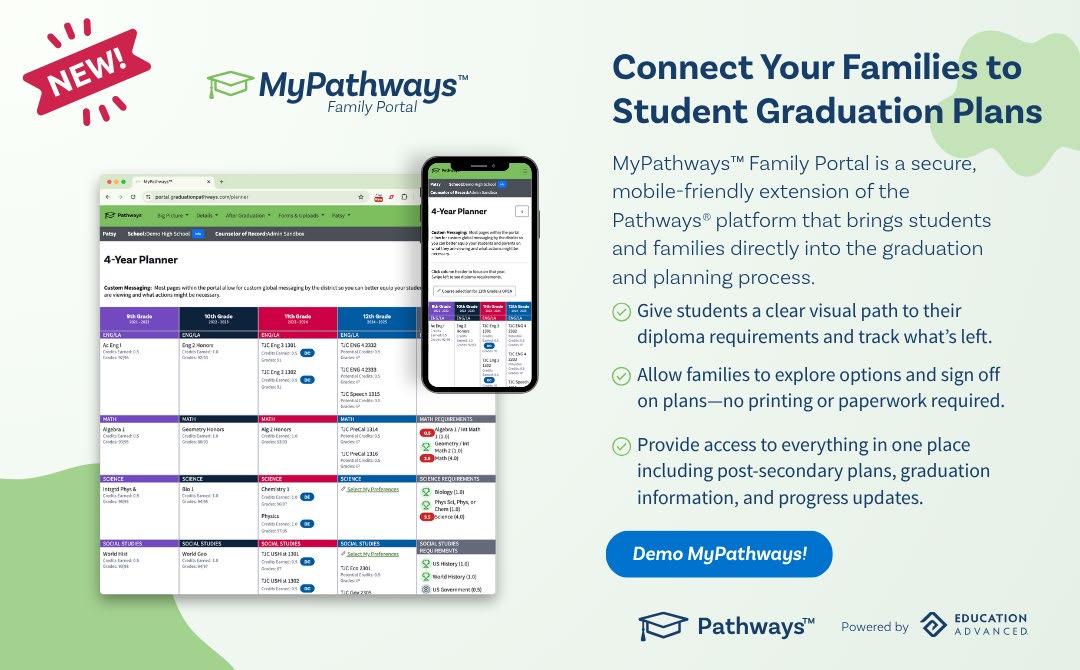
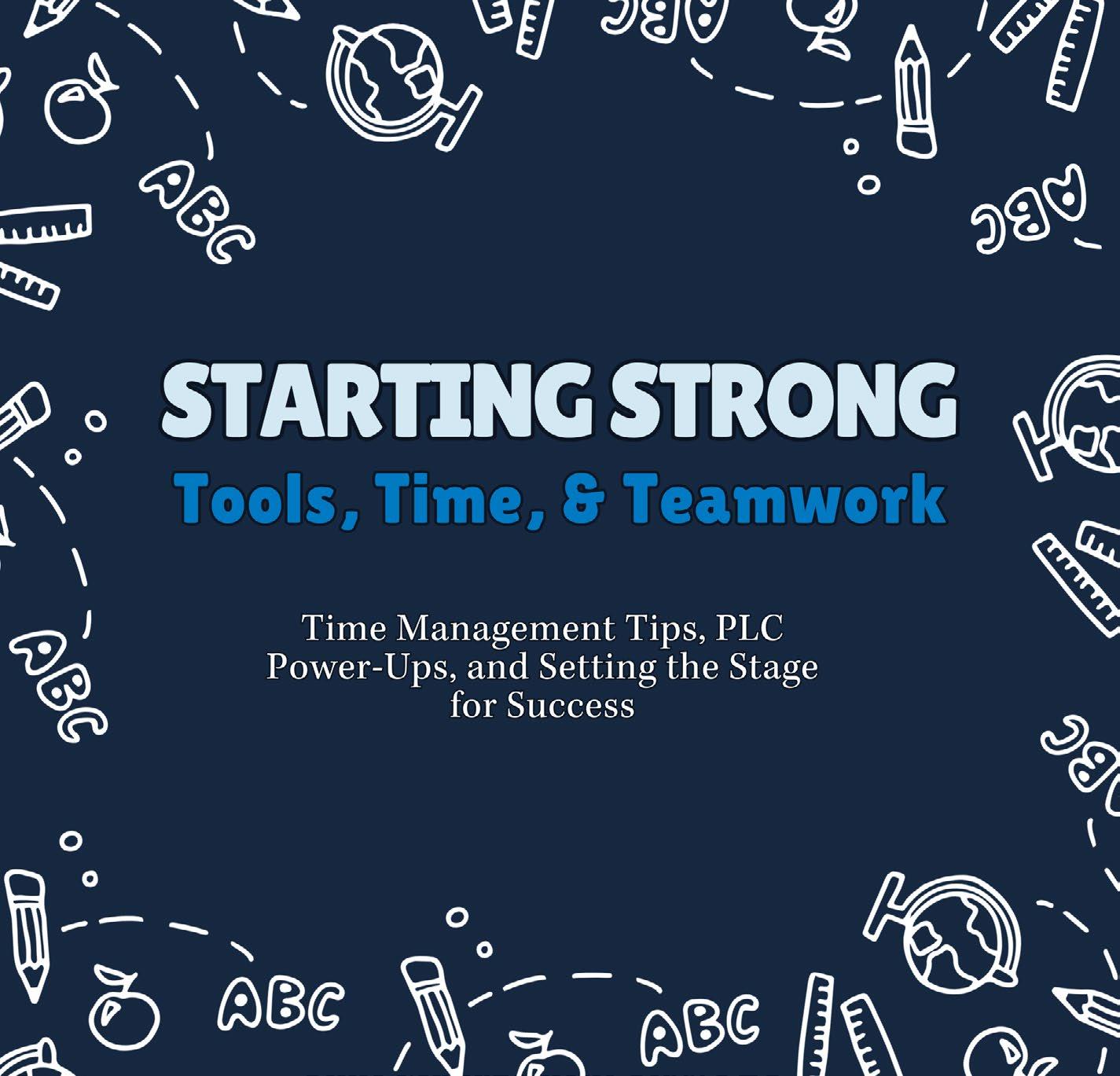

The




The
of "Becoming While Doing": IASP's Vision for the 2025-26 School Year
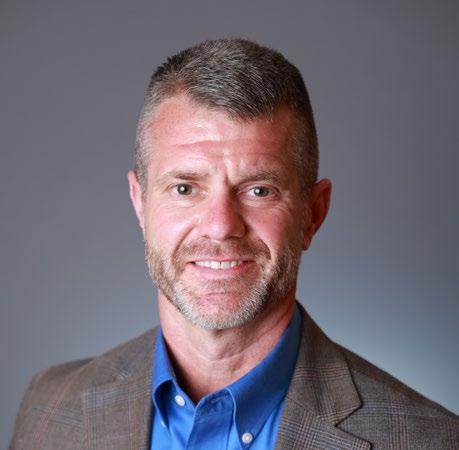
Welcome to the 2025-2026 school year! What an immense honor and privilege to serve as President of the Indiana Association of School Principals (IASP) and Principal of Batesville High School. At IASP, we enter the 20252026 school year with a renewed focus on enhancing your overall member experience. To enhance the collegiality we share in person, virtually, and through written communication, our Executive Leadership is committed to the foundational principles embedded within the School Leader Paradigm.
Similar to your influence through building-level leadership, IASP thrives when we lead by example. This philosophy aligns with my core leadership values: Intentionality, Consistency, Learning, and Growth. IASP leadership is committed to the intentional and consistent application of the Principal Paradigm across all our meeting opportunities. This framework provides an unparalleled opportunity to learn about our profession, embodying the Paradigm's vision of “Becoming While Doing,” which is essential for accelerating growth. It’s a vital reminder that true growth isn't just about acquiring knowledge, but also about the intentional and consistent application of that knowledge.
A recent learning journey focused on the concepts of Occupational Wellness and Time Management has led to personal and professional strategies, influenced by one of my professional mentors, Gary Munchel, founder of Bold Soul Learning. Gary introduced me to Stephen Covey’s Time Management Strategy of Quadrant 2 (Q2). For those unfamiliar, Stephen Covey, in his seminal work The 7 Habits of Highly Effective People, introduced Q2 as the "Quadrant of Quality and Personal Leadership." This quadrant focuses on activities important but not urgent, such as planning, building relationships, identifying new opportunities, and personal development. By prioritizing Q2 activities, individuals can prevent crises, improve relationships, and achieve long-term goals.
Our Executive Leadership team’s recent travels to the School Leader Collaborative Symposium, in Philadelphia similar learning journey The Paradigm's principles, brought vividly to life by examples shared from colleagues in Washington, Illinois, and Pennsylvania. A key component, or Q2 priority, of our member experience strategy is expanding both the knowledge and application of the Paradigms principles through IASP leadership. How consistently can we commit to this learning, understanding that new leadership habits aligned to the School Leaders Paradigm are formed through small, compounding actions? What do we truly want to learn, and how will we measure our growth? Our own learning profoundly matters, and it is the bedrock of success not only with IASP but within the respective buildings we lead.
Welcome Back Message from Andy!
Andy Allen IASP President

Starting Strong: Tools, Time, and Teamwork Time Management, Tips, and Setting the Stage for Success in the New School Year
Welcome back to the IASP Indianagram! As we step into a brand-new school year, I am thrilled to share this month’s theme—Starting Strong: Tools, Time, and Teamwork—designed to help you launch the year with clarity, confidence, and purpose. Our focus this month is on time management strategies, practical tips, and proven ways to set the stage for success in your school community.
You can expect this issue to arrive in your inbox mid-month on a Wednesday, filled with meaningful, curated content created by Indiana educators and leaders who understand your world. Every article, idea, and resource is carefully selected to be relevant, timely, and useful for your busy schedule.
The Indianagram is a true labor of collaboration. Our Editorial Board designs each issue with you in mind, ensuring it not only informs but also inspires—helping you make the most of your time and resources while strengthening your leadership impact.
Whether you are a returning subscriber or joining us for the first time, I invite you to explore this issue with the same enthusiasm we bring to creating it. Here’s to a strong start, a well-managed calendar, and a school year filled with growth and success.
LEAD On, Indiana!.
Dr. Tiffany Barrett
IASP Assitant Executive Director Editor in Chief, IASP Indianagram
2025-2026 Themes
AUGUST: Starting Strong: Tools, Time, and Teamwork
SEPTEMBER: The Road Ahead: Shaping the Future of Education
OCTOBER: Equity in Action: Special Populations Spotlight
NOVEMBER/DECEMBER: Grateful Gains: Tools and Triumphs in Education
JANUARY: Spark Joy: Beating the Winter Blues with Engagement & Enrichment
FEBRUARY: Ignite Innovation: Tech, AI, and Olympic-Level Ideas
MARCH: Marching Forward: Honoring Milestones and Memories
APRIL: Safe & Sound: Prioritizing School Safety and Wellbeing
MAY: Hearts of Gold: Celebrating the Power of Gratitude
JUNE: Best of the Best: A Year to Remember
Share your thoughts on the Indianagram: https://forms.gle/2LaxqTUNUc5AdviF8
IASP Executive Committee
Andy Allen President
Dr. Jane Bitting President-Elect
Dr. Bret Bailey Vice President
Dr. Holly Arnold Past President
Raimeka Graham
NAESP State Representative
Dave Strouse
NASSP State Coordinator
Kristen Peterson
Assistant Principal Liaison

IASP hosts events throughout the year to support the growth and development of Indiana school administrators and students. Each event is intentionally designed to encourage and engage all participants in the pursuit of learning!
Find A Full List Of Events at www.iasp.org/Events
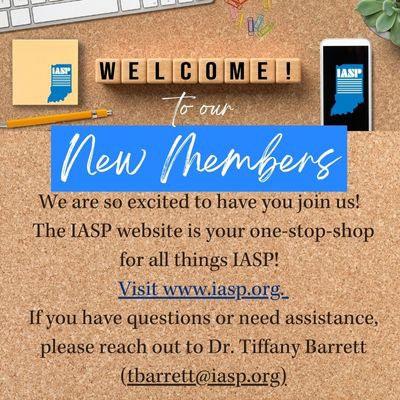
Special thanks to our Sponsors:


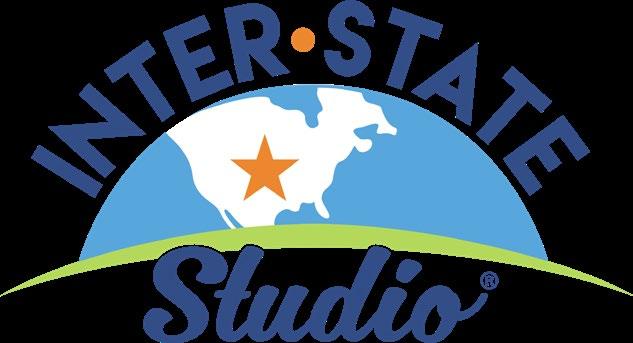



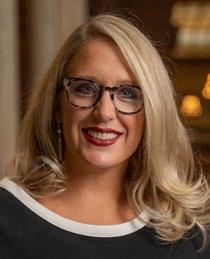
Dr. Katie Jenner Indiana Secretary of Education
Celebrating a Historic Step Forward for Indiana’s
Welcome back! Starting a new school year always brings excitement, an eagerness to get the year going, and some anxiousness too. I can remember times in the past not getting much sleep the night before a new year began as my mind raced through all the final details…many of you can probably relate! Preparing our students, schools, and classrooms for a new year is hard work…so thank you for the time and care you take in ensuring our students and schools are ready to learn and grow in the coming year.
August not only means the start of a new school year, but also a look at statewide literacy rates through the annual release of IREAD results. As most of you know by now, we saw unprecedented results on IREAD this year. This includes:
■ A nearly 5 percentage point increase in literacy rates— the largest in Indiana history;
■ Approximately 6,000 additional third grade students reading, compared to 2024 (a total of 73,500 third grade students reading statewide);
■ Literacy rates increasing for all student populations for the first time ever; and
■ Over 450 Indiana elementary schools hitting the state’s 95% reading goal!
To put Indiana’s nearly 5 percentage point increase in third grade reading proficiency into perspective, for states across our country, increasing proficiency rates even one to two percentage points in one school year can be challenging, even with significant investment and effort. In Indiana, the previous record for the largest year-over-year increase was set in 2024, and was less than 1 percentage point.
Regardless of whether you are an elementary, middle, or high school principal, you are each making a difference, and you know better than anyone that these are more than just numbers…these are individual students’ lives that have been impacted for the better.
When Indiana committed to strengthening early literacy, we knew it would require all of us, aligned and rowing in the same direction. At the center of this momentum are our educators in every corner of the state, including our teachers, instructional coaches, school leaders, support staff, and many others—who

are all in on working together to help more students become confident readers. I hope you take time to celebrate your wins and also keep your foot on the gas pedal.
There is no doubt that some days are easier than others, but every single day, the time you give to teach, support, and encourage our students, deeply matters and makes a difference. As principals, you set the tone for the building and ensure teachers have the evidence-based tools needed to support every student who sets foot through your doors. Your local leadership and efforts to cultivate the best possible environment for educator and student growth and development has contributed tremendously to our state’s nearly 5 percentage point jump.
Over the coming weeks and months as we continue to celebrate this unprecedented growth, I hope you remember and take pride in the fact that your work made this possible. We know that there is much more to do ahead and more positive impact we can make… one day at a time. Right now, this milestone belongs to you…so, a huge congratulations to our Indiana schools and educators, and as always, thank you for all that you do for our Indiana students!
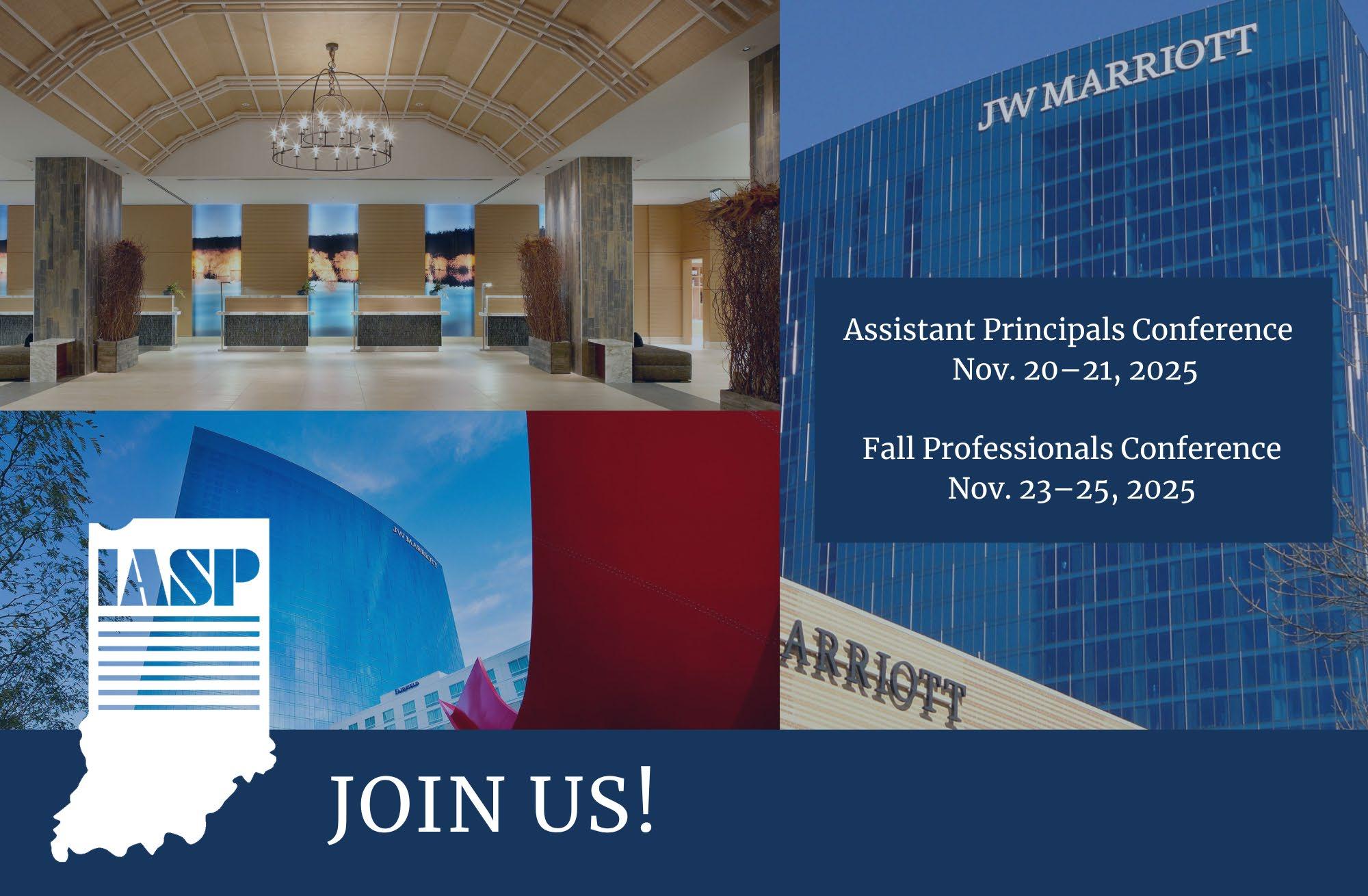
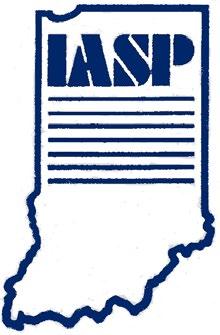
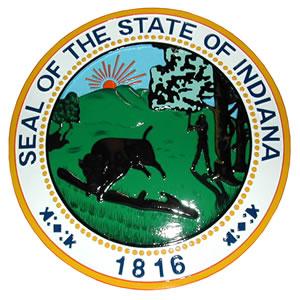



This fall, Girl Scouts of Central Indiana invites families to discover the power of Girl Scouting during Girl Scout Strong, All Week Long—a week-long celebration of courage, confidence, and character designed to introduce new families to the life-changing experiences Girl Scouts provides.
• Geared toward K-5 girls, Girl Scout Strong week takes place at schools, parks, libraries, and community centers across Central Indiana from Aug. 9-17.
• Girls will get a taste of what it means to be a Girl Scout: hands-on, girl-led fun in a safe, supportive environment.
Why should schools support Girl Scouts?
• Research shows participation in extracurricular activities like Girl Scouts positively impacts school performance, social-emotional development, and long-term leadership potential.
• Girl Scouts builds resilience, fosters community engagement, and helps girls develop critical life skills—from goal setting and teamwork to problem-solving and public speaking.
• When schools partner with Girl Scouts, they help create a bridge between classroom learning and real-world leadership.
Help spread the word! Families can save BIG on their Girl Scout membership. Aug. 9-17, they can join for just $25 — a 45% savings!
Discover events happening near your school. Scan the QR code and share with your families!
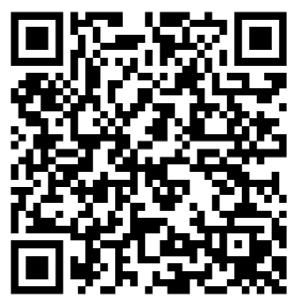
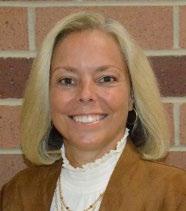
Mrs. Kristen Peterson Associate Principal Chesterson High School
IASP
Assistant Principal Liaison
Hello, Fellow Assistant Principals, Deans, and Aspiring Administrators! I hope everyone had a chance to relax and recharge this summer before gearing up for an exciting new school year. My name is Kristen Peterson, and I am the Associate Principal at Chesterton High School, as well as the Assistant Principal Liaison to the IASP Executive Committee of the Board of Directors.
As we prepare for the 2025–2026 school year, I look forward to serving and supporting all of you in this role. The liaison position is designed to amplify the voices of Assistant Principals, Deans, and Aspiring Administrators as the Board of Directors provides governance for IASP’s work. Through the Indianagram and the AP Lense podcast, I am excited to collaborate with you to showcase the remarkable work happening across our state. In late July, I sent out a short survey to gather your areas of interest and expertise. If you’ve already responded—thank you! If not, I encourage you to complete it at your earliest convenience.
August Theme: Time Management – Kicking Off the Year
As I thought about the August Indianagram theme, “Time Management: Kicking off the Year”, I remembered a presentation at the UNITED Conference this summer by Kimani Vaughan, Director of Elementary Schools in Virginia Beach City Public Schools called “Managing the School Year and Your Sanity!” where she introduced a proactive planning model called the S.A.N.I.T.Y. Blueprint, which helps leaders build systems to thrive rather than just survive.
S.A.N.I.T.Y. stands for:
Systems · Anticipate Stressors · Needs · Intentional Rhythms ·
Time Reclamation · You (Capacity & Identity)
Let’s break down each part of the blueprint to help you reflect, plan, and take intentional action this school year.
S – Systems
What systems (personal or professional) support your leadership right now? Which ones need improvement?
Professional Systems Might Include:
■ Delegating tasks based on team strengths
■ Using AI to create reusable templates
■ Prioritizing projects and breaking large tasks into smaller steps
■ Scheduling time for focused work, meetings, breaks, and reflection
Personal Systems Might Include:
■ Batch cooking meals on Sundays
■ Weekly calendar audits with your spouse or partner
■ Blocking out time for exercise throughout the week
■ Building margins into your calendar to reduce overload
A – Anticipate Stressors
What predictable stressors occur each season? What events consistently cause overwhelm?
In our building, fall stressors include:
■ Dual credit sign-ups
■ Homecoming week
■ PSAT day
■ October tournaments and performances
Anticipating and planning for these events helps us prepare and allocate resources more effectively.
N – Needs
What are your non-negotiable needs (e.g., sleep, time off, family time, exercise)? How do you ensure they’re honored— especially during high-demand months?
As leaders, it is important for us to model how we prioritize our personal needs for our staff. Taking the time to map out the challenges throughout the year and then problem solving how to navigate those challenges will empower you to face those high-demand times with confidence and resilience.
I – Intentional Rhythms
How do you align your energy, calendar, and commitments with the rhythm of the school year?
Ask yourself:
■ When am I most productive—morning or afternoon?
■ What fuels me? What drains me?
■ Does my calendar reflect my values?
Schedule high-focus tasks during your peak energy times and block recovery time in, too. Capitalize on the naturally high energy of a new school year, and adjust your priorities as needed throughout the year.
T – Time Reclamation
Where are you leaking time? What tasks, meetings, or habits can be adjusted or eliminated?
If you really want to see where you might be leaking time, check your phone’s social media screen time in your settings. I was shocked at my Instagram usage last year—even as I kept insisting that I didn’t have time to work out! What habits are keeping you from accomplishing your personal or professional goals?
Y – You (Capacity & Identity)
Reflect on your current season of leadership. What does grace and accountability look like right now?
Early in my career, I believed that only intense, daily workouts “counted.” Now, I recognize that striving for perfection often gets in the way of real progress. Workouts that are more aligned with my current needs—even if they’re less frequent and intense—are far more beneficial than doing nothing at all. What works for you now may not be what worked five years ago—and that’s okay.
In conclusion, Kimani Vaughan’s S.A.N.I.T.Y. Blueprint provides a sustainable framework for reflecting and preparing throughout the year. By staying proactive and intentional with our time, we can protect our sanity and sustain our impact. If I can be of help—or if you’re interested in co-authoring an Indianagram article—please don’t hesitate to reach out!
I hope you have a great school year!
Indianagram Topics of Interest Survey
Kristen Peterson kpeterson@duneland.k12.in.us
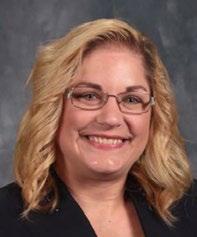
Dr. Tiffany D. Barrett IASP Assistant Executive Director
As we embark on the 2025–2026 school year, our theme— Starting Strong: Tools, Time, and Teamwork perfectly aligns with the School Leader Paradigm. This framework, rooted in the belief that leadership is both who we are and what we do, provides a powerful roadmap for setting the tone for a successful year.
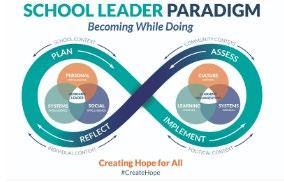
The Paradigm reminds us that strong leadership starts with self-awareness and intentional growth. In the Building and Mastering phases, leaders actively seek tools that refine their practice, manage time with precision, and invest in teams that amplify their impact. As you step into the new school year, consider how each domain of the Paradigm can support your journey:
■ Culture Domain – Shape an environment where trust, collaboration, and respect thrive. A positive culture doesn’t happen by accident—it’s the product of consistent modeling and intentional choices.
■ Systems Domain – Streamline your processes to maximize efficiency. Well-designed systems protect your most valuable resource: time.
■ Learning Domain – Commit to continuous learning for yourself and your team. The most effective leaders are always learners first.
When we apply the Cycle of Inquiry to our daily work, we not only stay focused on what matters most, but we also engage our teams in shared problem-solving and innovation. These practices ensure that the school year begins with clarity and momentum, positioning both leaders and their communities for success.
As you dive into this month’s Indianagram, I encourage you to reflect on how the School Leader Paradigm can serve as your guide. By aligning your tools, time, and teamwork with the principles of the Paradigm, you’ll do more than start strong—you’ll lead strong, all year long.
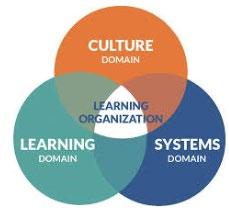
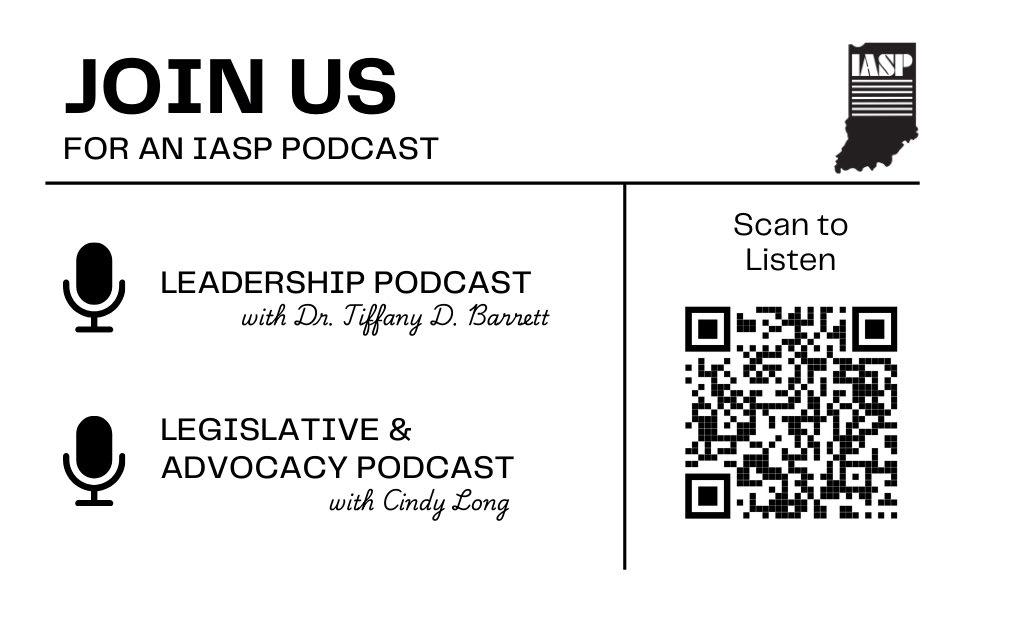
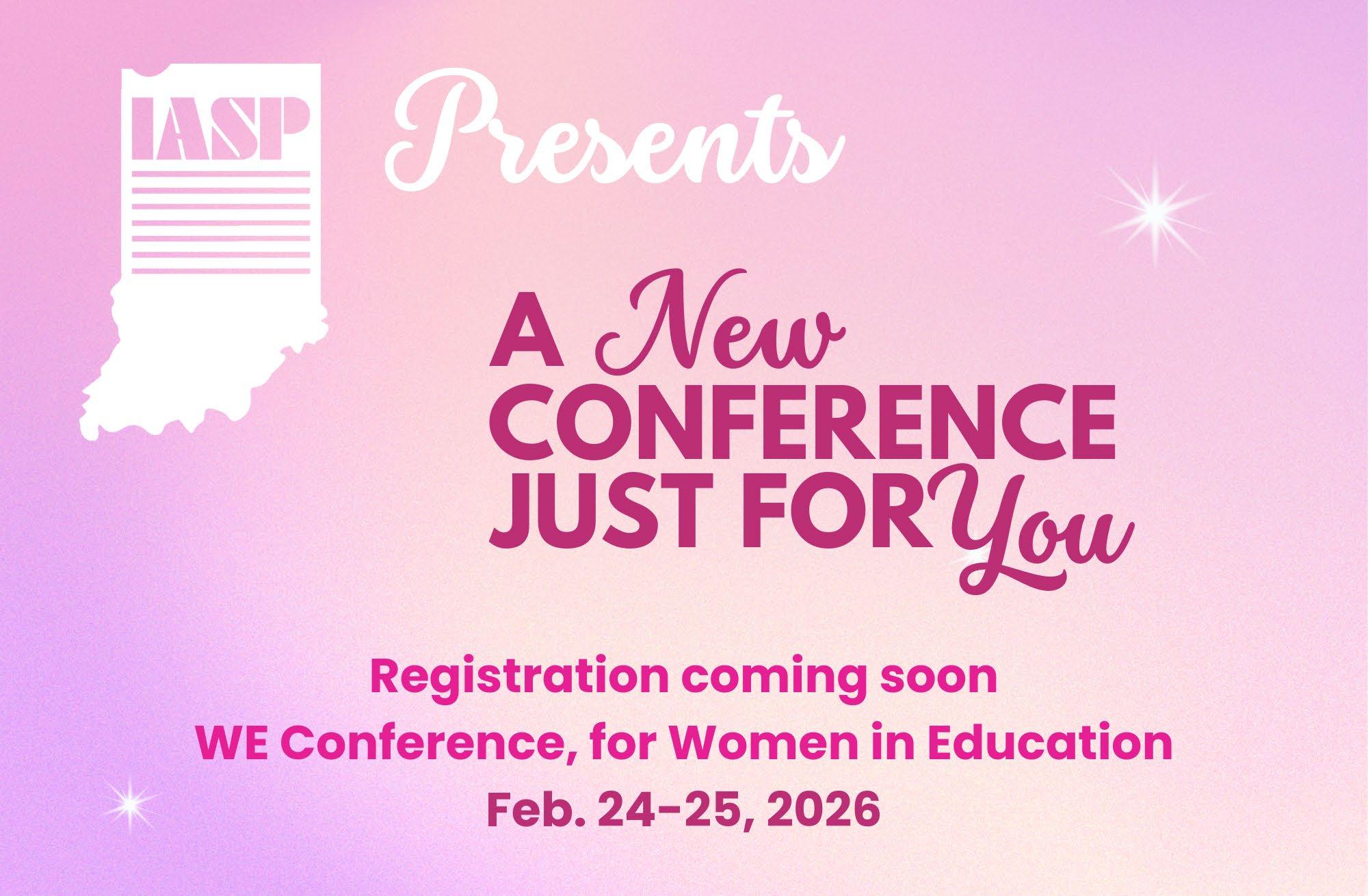

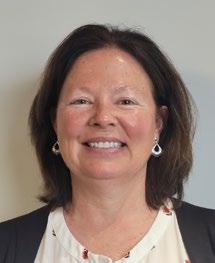
Julie Powell, Ed. D. Assistant Professor (Clinical) Department of Educational Leadership Ball State University
Do you start August with a fresh mindset looking forward and feeling planned for the new year ahead? Or…do you worry that there is so much to get done before students arrive that you find yourself anxious about how you will do everything?
Most administrators start the year running at full speed. They want to do the right things. They want to support staff, onboard new staff, fill all positions, finish master schedules, see students and families, answer a million questions, plan opening staff meetings and PD, build a positive culture, and on and on and on. Where do you start?
One thing I always found helpful was to be very organized with my lists and prioritize my list to be efficient. One time management skill that might help is to adhere to the concept of the 1-3-5 rule. With this system, you narrow your daily list down to one big important task, three medium tasks, and five small things to make your day more manageable. If that seems clear and easy, feel free to use it!
Another way to build organizational structure to your tasks is to build your Eisenhower matrix that I learned about from a PD long ago. Seeing this visual can help you categorize tasks based on their urgency and importance.
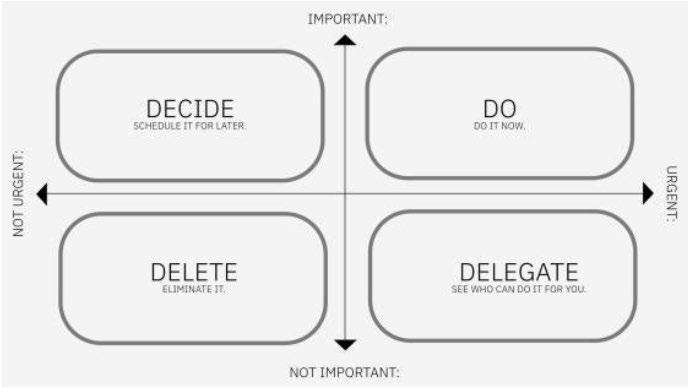
Do - Important and urgent: Handle these tasks immediately with dedicated focus time.
Decide - Important but not urgent: Schedule these tasks for later to execute these valuable tasks with a holistic game plan.
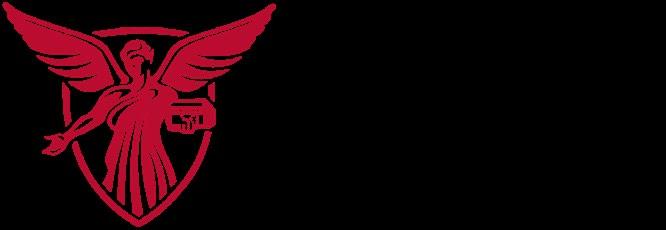
Delegate - Urgent but not important: Delegate these tasks to someone else who can do these tasks for you or look for automation opportunities.
Delete - Neither important nor urgent: Consider taking these tasks off your to-do list to free up your time and mental space for other higher-priority tasks.
There are plenty of ways that leaders use organization to help them. Whatever your system is, keep it simple yet personally effective for you.
Aside from organizational tips, I am a big fan of building culture and trust right away – with all staff and all families. Here are a couple ideas for that:
Make it a priority to schedule conversations with EVERY staff member at your campus a few weeks before school starts. This is not about intensive goal-setting or overtalking on your part. This is designed to LISTEN and GET TO KNOW staff on a personal level in a relaxed atmosphere. Have a few prompts available to start a conversation but let things flow naturally. How was your summer and what are you looking forward to with school starting? How can I support you most this coming year? Is there anything you want me to know right now as we start this year together? Jot a few notes after the person leaves so you remember later.
Another thing I watched a new principal in my district do was to call the home of EVERY student in her building just to welcome them before school started. These were two-minute conversations with the sole intention of saying hello, welcome, looking forward to seeing your child and working together this year. That’s it! She used the class list copies with phone numbers attached and checked each one off. She tried to make 15 calls a day (30 minutes) for a couple weeks to get the 400 students she had in her elementary school (remember some students have siblings so it is only one call per family). You could follow that model depending on your own size or do 15 calls in the morning and 15 in the afternoon and do it in one week if possible. What a way to build community and set a positive tone!
When it comes to professional development and opening staff meetings, I really believe in being present, prepared, and modeling the way you want to behave. Have fun leading staff through a fun activity which will lead to your
team’s theme for the year. Themes that are co-created by staff in a collaborative environment come to life in ways that administrator decided themes can’t always do. Find some messages of inspiration in you tube videos, podcasts, book passages. I love this video https://www. youtube.com/watch?v=6Fqp0AmTMJU by Joe Sanfelippo called “Be the Adult” which is about being the adult that everyone wants to be like. This would be a great video to share with your staff at that beginning meeting.
When the school year begins, make it a priority and a daily practice to get into every classroom every morning for a quick wave and to check-in. It’s a way for everyone to physically see you every day and it sets such a warm and caring tone. To put this into practice, make sure your office staff knows this will be your practice and then follow through, so it becomes a habit. I promise you – this is such a small investment in time and builds wonderful collegiality.
Imagine starting the year with your team feeling more connected, with your teachers leading with confidence, with your students engaged. That is a thriving school!
Enjoy your final few weeks and be that adult leader that everyone wants to have and work for!
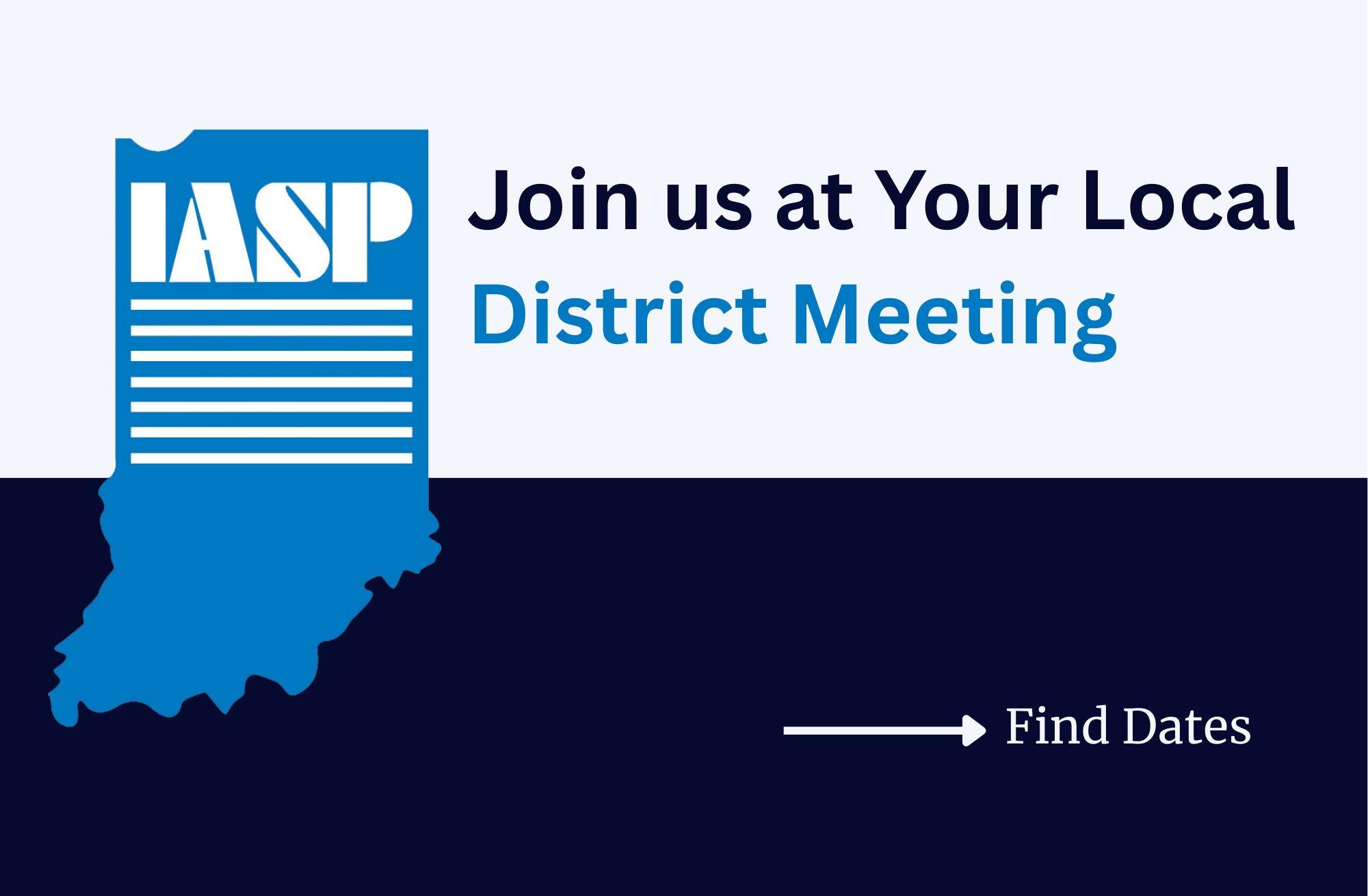
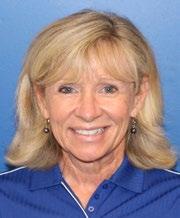
Dr. Kelly Andrews Director
Indiana Principal Leadership Institute
IPLI is a premier professional development opportunity for Indiana's practicing principals. We support and encourage you and provide growth in your leadership as we learn, lead, and connect.
The Indiana Principal Leadership Institute (IPLI) continues to shine as a beacon of excellence in educational leadership. As we step into the 2025-26 school year, we look forward to a season filled with learning, growth, and the opportunity to build meaningful connections with new colleagues.
A successful school year begins with thoughtful planning and intentional collaboration. By establishing strong organizational systems and nurturing a culture of shared growth, principals are empowered to lead professional learning communities (PLCs) that truly make a difference in their buildings.
When we prioritize with purpose and align PLC goals with broader school priorities, we create a focused and supportive structure that benefits every team member. Leveraging digital tools to centralize resources, meeting agendas, and action plans allows for seamless collaboration and easy access to shared materials.
Setting SMART goals—Specific, Measurable, Achievable, Relevant, and Time-bound—helps teams stay on track and celebrate progress throughout the year. Equally important is building in time for reflection and feedback, which fosters continuous improvement and encourages meaningful dialogue.
By promoting norms that value active listening, shared leadership, and mutual accountability, we create spaces where educators feel heard, supported, and inspired. These practices not only strengthen our PLCs but also spark innovation and elevate the learning experience for all.
Together, with the support of IPLI and one another, we are poised to make this school year one of purpose, progress, and powerful professional growth.
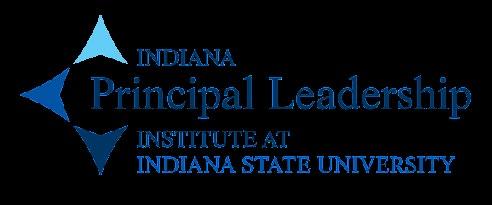
IPLI Graduates are invited to sign up for the Leaders Learning Together series, allowing them to join any cohort sessions throughout the year. To register, visit www. indianapli.org and select IPLI Extended. We also encourage you to bring your staff along for a fee of $30 per person.
The Fall September Seminars will feature Dr. Phil Warrick from the Marzano Institute sharing Effective Teaching in Every Classroom on September 23, 2025, and Dr. Nate Regier from The Next Element will join us to share Personality and Leadership: Stewardship of Your Greatest Assets on September 24, 2025. Dr. Regier will be joined by our very own Dr. Ryan Donlan and Emily Callahan, who will assist principals in leveraging their leadership capacities. Both sessions will take place at the new Lawrence Township Administration Center at 5720 Wheeler Rd. Indianapolis.
IPLI looks forward to serving principals again this year. These are exciting times to be an Indiana school leader!
To learn more about IPLI, please visit our website, www. indianapli.org, or connect with Dr. Kelly Andrews, Director, at kelly.andrews@indstate.edu to learn more about the IPLI program. Don't miss this opportunity to join a community of dedicated leaders committed to excellence in education.

Susan Miles
Program Officer, Kids Caring & Sharing TM Riley Children’s Foundation smiles@rileykids.org
Exciting developments to support Indiana schools’ legacy of giving
With the invaluable support of dedicated school families, Riley Children’s Foundation (RCF) is recognized nationally as a leader in collegiate and K-12 fundraising to benefit pediatric healthcare. We are the home of the nation’s largest and highest fundraising Collegiate (Indiana University – Bloomington) and High School (Carmel) Dance Marathons within the Children’s Miracle Network, and we currently work with 355 Indiana K-12 schools actively fundraising through our Kids Caring and Sharing™ and Dance Marathon programs.
As the preferred philanthropic partner of the Indiana Association of School Principals, we strive to help the next generation understand the power of philanthropy and how to put that understanding into action to raise critical funds for the state’s only nationally ranked, comprehensive children’s research hospital, Riley Hospital for Children.
On July 1, the Kids Caring & Sharing program and the RCF Dance Marathon program staff joined forces to become the Youth Philanthropy Program (YPP) Team at RCF.
As we enter the 2025-2026 school year, this new unified structure allows us to offer expanded support for your young philanthropists and school staff as they engage with RCF – all to benefit the kids and families who need Riley Hospital!
Your YYP Team
In my newly titled role as the Youth Philanthropy Program Officer – KCS, I will continue to support actively participating K-12 schools, encourage schools who may have paused their KCS fundraising to rejoin our dynamic family of Riley supporters, and invite new participation from schools who may not yet be engaged in the KCS program.

Jason Zuniga, Youth Philanthropy Program Coordinator – K-12, joins me in serving K-12 schools bringing his experience with the dance marathon program to high schools already hosting a Riley dance marathon. Jason will assist any elementary, intermediate, and middle/junior high schools within a school corporation who has a dance marathon high school. For example, both Westfield High School and Huntington North High Schools host Riley dance marathon model fundraisers, thus any school within their school corporation that is interested in fundraising for Riley can turn to Jason for assistance. jzuniga@rileykids.org
High schools that do not raise funds through a dance marathon

fundraising model, like North Central High School’s online campaign, or Concord High School’s Potter’s Marathon, or North Side High School’s Dancing with the North Side Stars showcase, and all their affiliated school corporation schools will continue to work with me for any Riley fundraising needs.

Alli Kimmell, Youth Philanthropy Program Officer – IUDM, will exclusively support Indiana University Dance Marathon, Carmel High School, and all Carmel-Clay Schools in their Riley fundraising efforts. akimmell@rileykids.org

Mia Miller, Youth Philanthropy Program Coordinator–Collegiate Dance Marathons, will support all other (non- IU) collegiate dance marathon programs. miamiller@rileykids.org
A new Youth Philanthropy Program Officer – Dance Marathon Engagement, will join the YPP Team soon to lead our efforts in growing our high school dance marathon program through recruitment and program onboarding.

Sarah Franz, Director, Youth Philanthropy will oversee the entire YPP Team with additional responsibilities for developing ongoing philanthropic engagement with Riley’s dedicated Dance Marathon alumni. sfranz@rileykids.org
Celebrating a successful 2024-2025 fundraising year
You can find details regarding the incredible 2024-2025 fundraising year here next month. In the meantime, please watch your mail for a late August/early September delivery of the 2024-2025 KCS participation decals for school recognition plaques along with a report of the very real impact your efforts and your gifts are making for Hoosier kids and families!

Addison Sorg
2025-2026 Potawatomi Lieutenant Governor
260-571-6514
potawatomiltg.kci@gmail.com
Key Club is a Kiwanis sponsored Service Leadership Club for high school students. Key Club is the oldest high school service leadership program in the world just celebrating their 100th anniversary in 2025. Key Club is a student led club focused on developing leadership skills through the vehicle of community service.
The Northfield book walk happens once a year during the spring. Key Club decides on a date to do it and then we choose the book. Last year we chose Pete the Cat: The Great Leprechaun Chase. We come up with ideas for a craft and a snack that relates with the story. We print pages out and glue them on a poster board so kids can read them better. On the day of the project, some of us go around the elementary's cafeteria in pairs of two with a different page of the book. The others that are not doing that will help pass out snacks or help the kids make crafts. We read to preschool through 2nd grade. They start with walking around each station listening to the book, then afterwards they do the craft and get a snack.

Kiwanis Bring Up Grades (BUG) Program: Empowering Students to Reach Their Potential
Overview:
The Kiwanis Bring Up Grades (BUG) Program is a schoolbased initiative designed to encourage and reward academic improvement among students. Rather than focusing solely on high achievers, the BUG Program recognizes the hard work
and determination of students who show measurable progress in their grades, no matter their starting point. It promotes a culture of growth, persistence, and self-belief—key traits that extend far beyond the classroom.
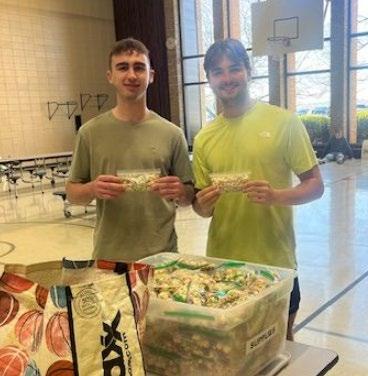
1. Encourage Academic Growth:
The BUG Program celebrates progress over perfection. It motivates students to improve their performance in any subject by recognizing effort and dedication.
2. Build Self-Esteem and Motivation:
By recognizing improvement, students gain confidence and are more likely to continue striving for success.
3. Involve Parents and the Community:
The program fosters a support system where teachers, parents, and community partners work together to support student success.
Eligibility:
Based on the grade levels preferred by the school, all students are eligible to participate. The only requirement is that they show improvement in one or more subject areas without allowing any other grades to drop.
Recognition:
At the end of each grading period, students who have brought up at least one grade while maintaining others are celebrated.
Recognition may include:
■ Certificates of achievement
■ Name on a BUG Honor Roll board
■ Small prizes or incentives (donated by the local Kiwanis club, local businesses and/or school partners)
■ Special events like BUG parties or award events Tracking Progress:
Teachers and staff help monitor and report improvements. Parents are encouraged to participate in encouraging their children and celebrating their progress.
Traditional honor rolls often overlook students who work extremely hard to overcome academic challenges. The BUG Program provides these students with the recognition they deserve. It helps develop a growth mindset, where effort and improvement are valued just as much as achievement.
Studies show that when students are recognized for their effort—not just outcomes—they are more likely to stay engaged, set goals, and perform better over time. The BUG Program is a powerful way to help every student feel seen, supported, and motivated.
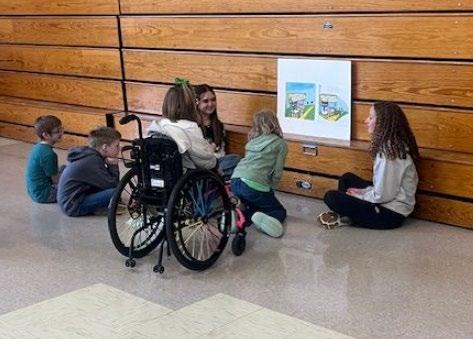
Success Stories:
Schools that have implemented the BUG Program have seen increases in student participation, improved behavior, and stronger relationships between teachers and students. One school reported a 25% increase in the number of students passing all core subjects after one year of the program.
Whether you're a parent, teacher, or community member, you can support the BUG Program by:
■ Volunteering to help with recognition events
■ Donating incentives or prizes
■ Mentoring students and encouraging them to keep improving Together, we can help all students believe in their potential and celebrate the journey of learning.
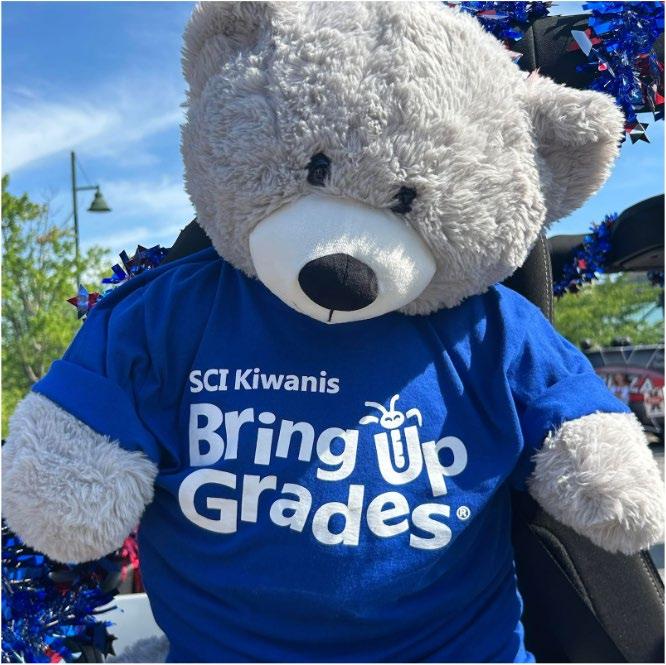
Conclusion:
The Kiwanis Bring Up Grades Program is more than just a reward system—it's a commitment to equity, encouragement, and educational growth. By shining a light on the power of persistence, the BUG Program transforms lives and creates a school culture where every effort counts.

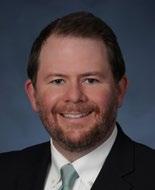

Séamus Boyce Attorney Kroger Gardis & Regas, LLP
Keith Butler Associate Attorney Education Law & Policy
Kroger Gardis & Regas, LLP
The Supreme Court of the United States (SCOTUS) decided several cases that impact K-12 education in the most recent term. Likely none will have a larger impact on building-level leadership than Mahmoud v. Taylor (2025). In our November 2024 article, we described this case when it was decided by the (lower) Fourth Circuit Court of Appeals. SCOTUS overturned the Fourth Circuit decision. Of no surprise but still of note, the SCOTUS opinion emphasized different facts than the Fourth Circuit. The next several paragraphs summarize what SCOTUS emphasized.
A school board of a public school district selected 13 LBGQT+ inclusive texts for use in the English and Language Arts curriculum from pre-K through 12th grade. Five of these storybooks were the focus of the litigation. The board approved the following five texts for students in Kindergarten through fifth grade: Intersection Allies, Prince & Knight, Love Violet, Born Ready: The True Story of a Boy Named Penelope, and Uncle Bobby’s Wedding. The school board also provided professional development for teachers to assist with incorporating these texts into instruction. Some of the training included responding to inquiries about transgender people with the following script: “[w] hen we’re born, people make a guess about our gender and label us ‘boy’ or ‘girl’ based on our body parts. Sometimes they’re right and sometimes they’re wrong.” The guidance document encouraged teachers to “[d] isrupt the either/or thinking of their students.” Also, if a parent asked whether the school was attempting to teach a child to “reject” the values taught at home, teachers were trained to respond that “[t]eaching about LGBTQ+ is not about making students think a certain way; it is to show that there is no one ‘right’ or ‘normal’ way to be.”
Several parents raised concerns at board meetings. A board member suggested that the objecting parents were comparable to “‘white supremacists’” who want to prevent their children from learning about civil rights and “‘xenophobes’” who object to “stories about immigrant families.” The board initially allowed parents to opt their children out of the portions of class that included these texts. However, the board changed its policy to no longer allow opt outs because they believed

the volume of opt outs were becoming disruptive to the learning environment. The board continued to allow opt outs in other areas including the “family life and human sexuality” unit of instruction, as was required by state law, and they allowed opt outs of noncurricular activities such as classroom parties or free-time events that involve materials or practices in conflict with a family’s religious or other practices. Several parents sued claiming the curriculum undermined their ability to raise their children according to their religious beliefs. These parents argued that the board’s refusal to provide notice to the parents about when the texts were to be used and to refuse to provide opt outs violated their rights under the First Amendment’s Free Exercise [of Religion] Clause.
The SCOTUS decision describes that the books were clearly designed to present certain values and beliefs as things to be celebrated and certain contrary values and beliefs as things to be rejected. According to the Court, this was more than mere exposure to objectionable ideas or lessons in mutual respect. They convey a particular viewpoint about same-sex marriage and gender. And the board specifically encouraged teachers to reinforce this viewpoint and reprimand any children who disagree. The Court found that the curriculum at issue would substantially interfere with the religious development of the child or pose a real threat of undermining the religious beliefs and practices the parent wishes to instill in the child. The SCOTUS opinion goes on to refute the argument that allowing opt outs would micromanage public school curriculum. Instead, the Court states that the Constitution allows parents to opt out of having their children participate in a particular education requirement that burdens the well-established right to direct the religious upbringing of children. The opinion also mentions that several states already allow broad opt outs through statute. A strong dissent opinion was also written. The dissent opinion argues that the decision offers no limiting principle to the opt out requirement: “Requiring schools to provide advance notice and the chance to opt out of every lesson plan or story time that might implicate a parent’s religious beliefs will impose impossible administrative burdens on schools.” The dissent also warned that the majority opinion will have a chilling effect because schools will self-censor anything that
might be considered objectionable rather than risk litigation costs.
First and foremost, you should be aware if your school’s curriculum or library includes any of the books specifically referenced in the case. You may not have to change how you use these books, but you should proceed with eyes wide open and at least prepare for scrutiny and opt out requests from parents. Additionally, use or evolve your interactive process, similar to when an employee requests disability related accommodations, when a parent objects to part of a school curriculum based on religious grounds. Try to understand what specifically they are concerned about and why they do not want their child exposed to certain material. Discuss and weigh the need for that material to be used as part of the curriculum and the difficulty in creating alternative text options or exercises. Is the material used to expose students to different ideas or to persuade students to believe certain values? Finally, be thoughtful and consistent about processing complaints and opt out requests. The inflammatory remarks from
the board member in the SCOTUS case as well as the roll back of the opt out option were particularly damaging to the school’s arguments. As is almost always the case, bad facts make bad results.
We at the KGR Legal Help Desk are here to address these and any non-personal employment legal issues for IASP members. Until the next KGR Law Brief, we hope you have a great (or at least survive the) start to the school year.
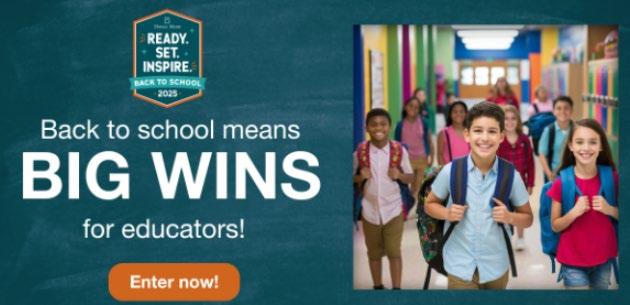

11025 East 25th Street
Indianapolis, IN 46229
1-800-285-2188 or 317-891-9900
www.iasp.org | iasp-info@iasp.org

